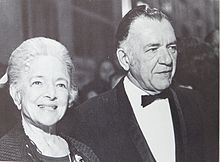Wonky Rules, What We Talk About When . . .
Have you ever attended a talkback after viewing a new work (a staged reading or workshop production) and been shocked by the level of feedback? Maybe you wrote the play. Maybe you simply admired it. You thought it had a lot going for it. Then out they come. THE WONKY RULES OF DRAMA.
It’s as if the spirit of Agatha Trunchbull, the rule-mongering headmistress of MATILDA THE MUSICAL, is unleashed and what the play has going for it gets overwhelmed with a system of negativity that demands conformity.
A play might be as remarkable as the young heroine Matilda . . . but never mind. There are the WONKY rules. Obey, obey, obey.
The trouble with rules, especially theatre art rules, . . . they come and go according to the taste of the times. They may be well-meaning and can be helpful in some instances. More often than not, they inhibit creativity. They are blind to originality. They dismiss. They do more harm than good when they inspire connect-the-dots, rule-book dramas.
Wonky Rules Make For Dramatic Rigor Mortis
“The moment we succeed in consciously patterning our theater,” Walter Kerr has written, “in making it do precisely what we think it ought to be doing, we are apt to paralyze it.” Kerr, a revered New York theater critic and intellectual force in the theatre for many years, won the Pulitzer Prize for Criticism in 1978. As an instructor of playwriting, he mandated to his students that the purpose of the playwright is to entertain.
About rule-oriented theatre, he cites the neo-classical Italian theatre of the 16th century, the state-censored French theatre of the 17th century, and the moral British theater of the 18th century as eras of dramatic rigor mortis. “In each case, the deliberately shaped experience became an experience of boredom, and what had been outlawed as vulgar proved to be embarrassingly vital.”
If you think of plays as something constructed or wrought, that you are building a piece of furniture, then it is going to be different than it would be if you think writing a play is like composing or painting, an act of creation that involves the imagination.



Recent Comments